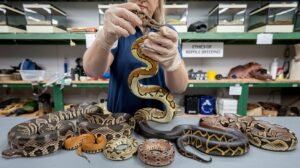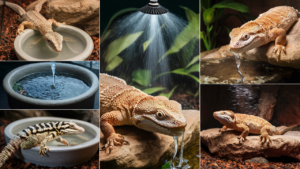In the journey of pet ownership, understanding various aspects of care is crucial. This article delves into puppy housetraining techniques, explores the importance of social play in kittens, reviews insurance options for exotic pets, and examines types of bedding suitable for small animals. Dive into these topics to enhance your pet care knowledge.
Understanding Puppy Housetraining Techniques
Puppy housetraining is a critical step in establishing a harmonious relationship between pet and owner. Explore techniques such as crate training, the importance of consistency, and positive reinforcement strategies. Understand the psychology behind a puppy’s need to relieve itself and how to effectively communicate expectations. Highlight tips for avoiding common mistakes, such as punishing accidents, and provide insights into recognizing signs that a puppy needs to go outside.
Kittens thrive on social interaction and play, which are vital for their development. Engaging in rough and tumble antics with siblings enhances their agility and coordination, while solitary stalking games promote hunting instincts. Social play fosters essential skills such as self-regulation, and it builds bonds with humans and other pets. Interactive toys cater to their curiosity and energy, and safe play spaces allow kittens to explore their surroundings without risk.
When considering pet insurance, it’s essential to evaluate various exotic pet insurance options, which cater specifically to unique health concerns and care needs. Policies may cover species-specific ailments, routine check-ups, and emergency treatments. Understanding the coverage limits, waiting periods, and exclusions for exotic animals is crucial. Finding a provider with experience in exotic pet care ensures tailored support, enhancing peace of mind for owners of reptiles, birds, and small mammals.
Choosing the right bedding type for small animals plays a significant role in their comfort and wellbeing. Options vary from natural bedding, like aspen shavings or straw, to synthetic materials that provide odor control and easy cleaning. Soft, absorbent bedding ensures a cozy environment while minimizing the risk of respiratory issues. Researching the specific needs of each small animal species helps in selecting appropriate bedding that supports their health and enriches their living space.
The Importance of Kitten Social Play
Kittens thrive on social interaction and play, which are vital for their development. Engaging in rough and tumble antics with siblings enhances their hunting skills. Solitary stalking games help develop focus and self-regulation. Social play fosters bonds with humans and other pets, creating a harmonious environment. Interactive toys promote mental stimulation, while safe play spaces allow kittens to explore their instincts. Encouraging diverse play experiences enriches their physical and cognitive development, laying the groundwork for confident, well-adjusted adult cats.
Exploring Exotic Pet Insurance Options
Considering the diverse needs of exotic pets, securing insurance that covers their unique health risks is vital. Owners should compare plans emphasizing preventive and emergency care.
Providers often offer options tailored for reptiles, birds, and small mammals, covering conditions like respiratory infections in birds, metabolic bone disease in reptiles, and dental disorders in small mammals. Knowledge of specific health issues and coverage details helps owners choose wisely.
Types of Bedding for Small Animals
Bedding serves as a crucial component of small animal care, impacting health and comfort directly. Wood shavings, such as pine and cedar, are popular but can irritate respiratory systems; therefore, they are best used with caution. Hemp bedding is an excellent alternative, offering superior absorbency and being less irritating. Paper bedding, including options like recycled paper or shredded paper, provides a soft, dust-free environment and is highly absorbent, making it suitable for sensitive pets. Straw, although a natural choice, can harbor pests and lacks absorbency, making it less ideal.
When choosing bedding, consider the specific needs based on species, size, and potential health issues. For example, rabbits may benefit from softer paper bedding, while guinea pigs appreciate the texture of hemp. Regular bedding changes are vital to prevent odor and the buildup of harmful bacteria. Maintaining a clean habitat boosts well-being, ensuring small animals thrive in a safe and comfortable environment.
Conclusions
Effective pet care goes beyond basic needs; it encompasses housetraining, social interaction, financial protection, and proper bedding. By implementing positive reinforcement techniques for puppies, encouraging playful interactions in kittens, exploring suitable insurance for exotic pets, and selecting appropriate bedding types for small animals, you ensure a fulfilling and healthy life for your pets. Your diligent care significantly impacts their happiness and well-being.



